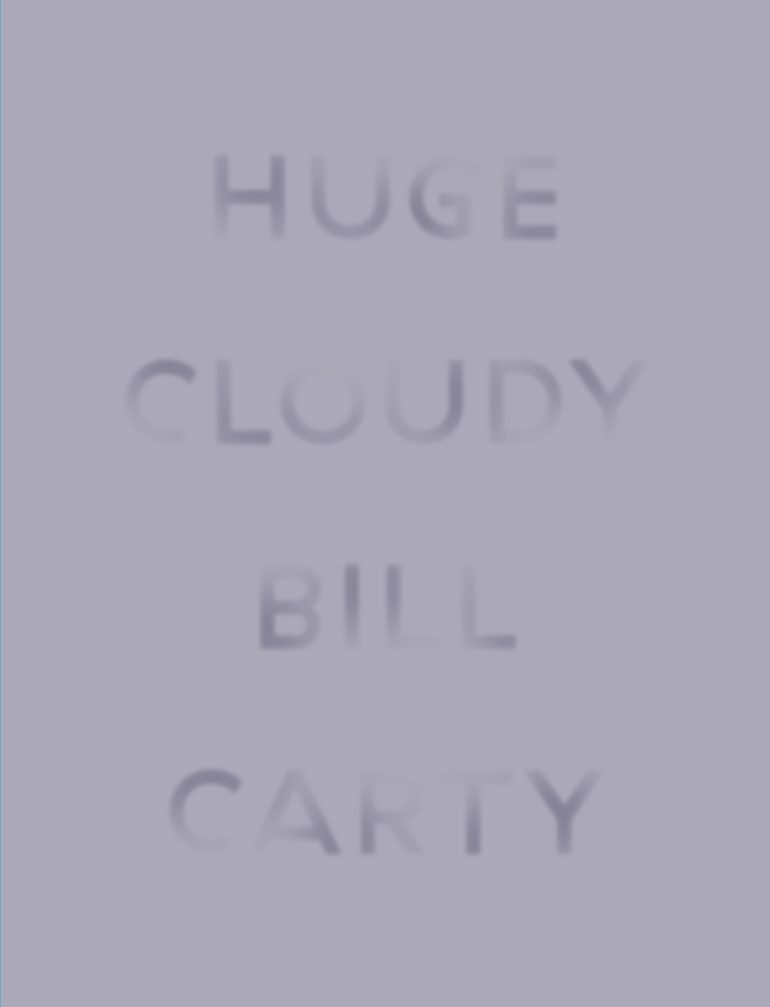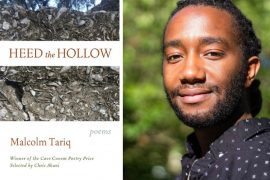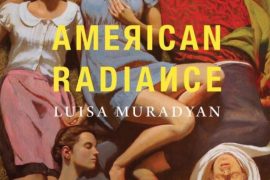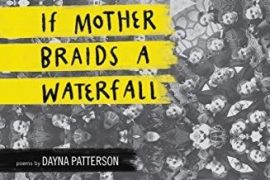During so much uncertainty, different genres can help us cope in different ways—fiction can offer an escape from reality; nonfiction can bring us closer to it; and poetry can heal and provide moments of hope. It’s reassuring, however, when a book offers its readers all three of these opportunities. Bill Carty’s Huge Cloudy is more than just a debut, but a map that can help us navigate the small and grave difficulties of a such a mercurial world. In poems such as “Bounding Sphere,” we see how a moment of reflection can lead to calm acceptance:
Pleiades floats into the telescope,
announcing November. A priest
of capacious belief weeps
upon the altar. Finally. If only
there was more weeping.
As when St. Catherine had her
heart torn sidewise. As a vine
creeps through the window to snatch
Amundsen’s Northwest Passage
from the shelf. As ragweed
and blossoms find us
in the bedroom. As less now
than ever is the range of the banyan.
As we tear open the tea and watch
the blue flame. As seen on television,
the detective can solve all but her sadness.
The weeping here is not one of tragedy, but of acknowledgment, of coming to terms with the realities we must all face. Carty’s poetry reminds us that hard truths and beauty are not incompatible, and that every day is a day to cherish not only what we have, but what we don’t. Huge Cloudy is nothing short of a gift in times like these.
Esteban Rodriguez, Interviews Editor
The Making of Huge Cloudy
Huge Cloudy was written over the process of roughly five years, during which the manuscript continuously evolved; new poems entered, and older poems shuffled out. The collection really began to cohere in my mind when, after a few failed attempts at titling it, I landed upon Huge Cloudy. The title poem had existed for a while (the title itself a snippet of Keats’s sonnet “When I have Fears I May Cease to Be”), but it didn’t strike me as a possible title for the collection until I discovered the epigraph for the book, a bit of dialogue from Andrei Tarkovsky’s Solaris.
Early in the film, a pilot is reporting his findings to an officious team of scientists and government functionaries, and one of them, disappointed to discover the utter lack of answers provided by the pilot’s footage of the planet Solaris, says with exasperation, “You filmed clouds! Why did you film only clouds?”
This line resonated for me as a tongue-in-cheek commentary of the role of a poet. Of the way a poem necessarily must not stand before a panel of experts. For me, a poem feels complete when its thinking is complete. When it has arrived at its end point, which may be in or outside of understanding. I think that the poem stands as a record of thought, though perhaps not a complete one. I think of poems as not making arguments, but revealing the breadth of human experience and observation: of media, class, identity, and politics.
One reason that I think the book took a long time to complete is that I was committed to writing poems as they came to me, rather than writing poems to “fit the book.” So while most of these poems were published individually before the book was published, it took the completion of the longer sections within it, “Aurora” and “Bounding Sphere,” for the book to feel balanced. I was revising these longer poems right up until the final months before the book’s publication, and I’m thankful for the flexibility Octopus Books allowed me to do so.
My second collection is coming together in a similar, rather haphazard, fashion. I’ve been working on a few longer serial poems (one of which was recently published in Paperbag), a whole lot of short, disconnected poems that began as iPhone notes while walking or parenting, and some longer poems that have been in progress for a year or more. I’m resolved to put less pressure on myself to “finish” this manuscript, and to recognize that the only way for me to find its shape is to continue to write it. So far, I see the concerns of the book being similar to Huge Cloudy. I’m not sure, at this point, how to approach writing in any other way than rooted in the world of reading, observation, and experience. As the main character of Solaris asks near the end of the movie, “What next? Return to Earth?”





